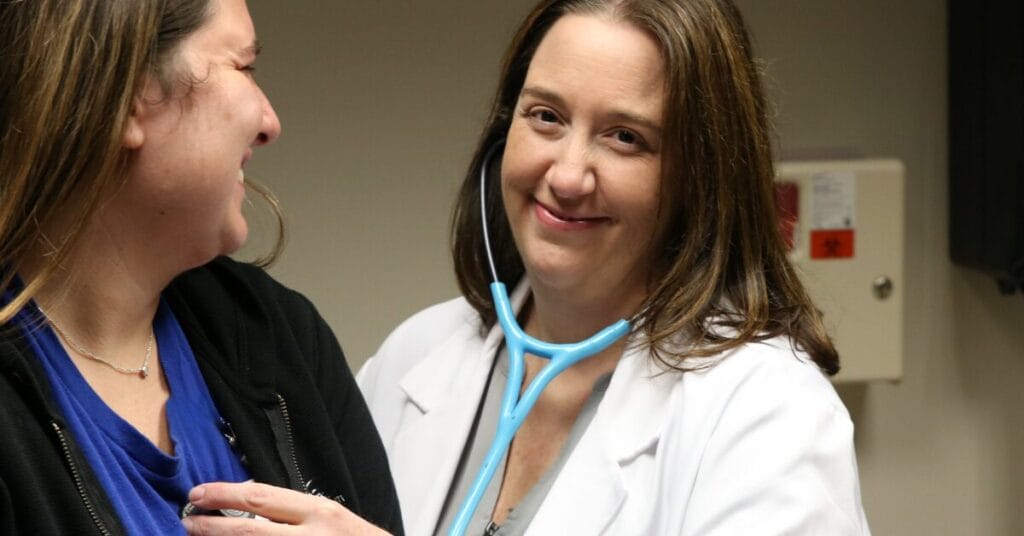
Hospitals are vital for the health of a community and necessary to drive a healthy economy. Accessible, high-quality health care is our mission — and it’s not just about treating patients.
This year marks 100 years that Methodist Hospitals has been serving the needs of Northwest Indiana residents. And we have a range of strategic initiatives that are helping to drive growth and enable us to continue to make significant investments in technology, people and services.
We employ more than 2,100 people, provide high-paying jobs, and our doors are open 24 hours a day, seven days a week. One of the largest employers in Northwest Indiana, Methodist Hospitals’ total annual economic impact on the region is almost $800 million. As a safety net hospital, we invest more than $100 million annually in uncompensated care, charity care, and free physician and community services.
However, as we rebuild from the pandemic, which stretched our resources to a record low, our hospital faces significant financial challenges: an unprecedented workforce crisis; skyrocketing costs of drugs, labor and equipment; and lingering supply shortages, among others. A recent Health Affairs article noted, “Hospitals in the U.S. are on track for their worst financial year in decades.” Indiana is no outlier, as hospitals across the state have lost billions in days of cash on hand since the pandemic. Here locally, Methodist Hospitals’ days of cash on hand at the end of 2022 was down 31% versus 2021.
To further compound these challenges, pending legislation at the Indiana State House would have a devastating impact on Methodist Hospitals if passed. Indianapolis special interest groups with out-of-state funding are lobbying to cut hospital reimbursement while hospitals are most fragile. These policies would further erode the viability of hospitals and implement government rate setting — an extreme departure from Indiana’s free market principles.
These bills, SB 6, SB 7, HB 1003 and HB 1004 would not improve health care in our community but would instead incentivize consolidation and force more rural and safety net hospitals to close. Indiana already has the highest percentage of rural hospitals at risk of closure and the highest uninsured rate among all our surrounding states. And proposed changes in the federal calculation of DSH funds could take millions from our bottom line.
Despite current challenges, Methodist Hospitals is committed to affordability. We have a variety of financial assistance programs, including a policy that provides support paying for medical care on a sliding scale, financial counselors to assist people in applying for coverage via HIP2.0 and ACA marketplace, partnerships to assist with Medicaid enrollment and programs to subsidize mammograms and other breast cancer diagnostics.
We are actively engaged in a number of efforts to reduce costs, such as initiatives to improve quality of care and lower costs by reducing hospital acquired conditions, lowering the costs of equipment and supplies, negotiating with insurers to obtain better pricing on drugs and procedures, and offering discounted medication prices in our outpatient pharmacy via the 340B program.
Local progress in our community should not be impeded by Indianapolis interests. We need legislators to enact real solutions this session, such as raising state Medicaid rates — which only cover 53% of hospitals’ cost of providing care — to relieve the cost shifting burden on businesses and consumers.
We must work together to secure the future of high quality, accessible health care and reject legislation that would harm our hospital and our community. The wrong policies could have devastating impacts that could destabilize the system in these volatile times.
Read the Indiana Capital Chronicle's story about rural Indiana hospitals' concerns about Indiana lawmakers spotlighting high health care costs.




